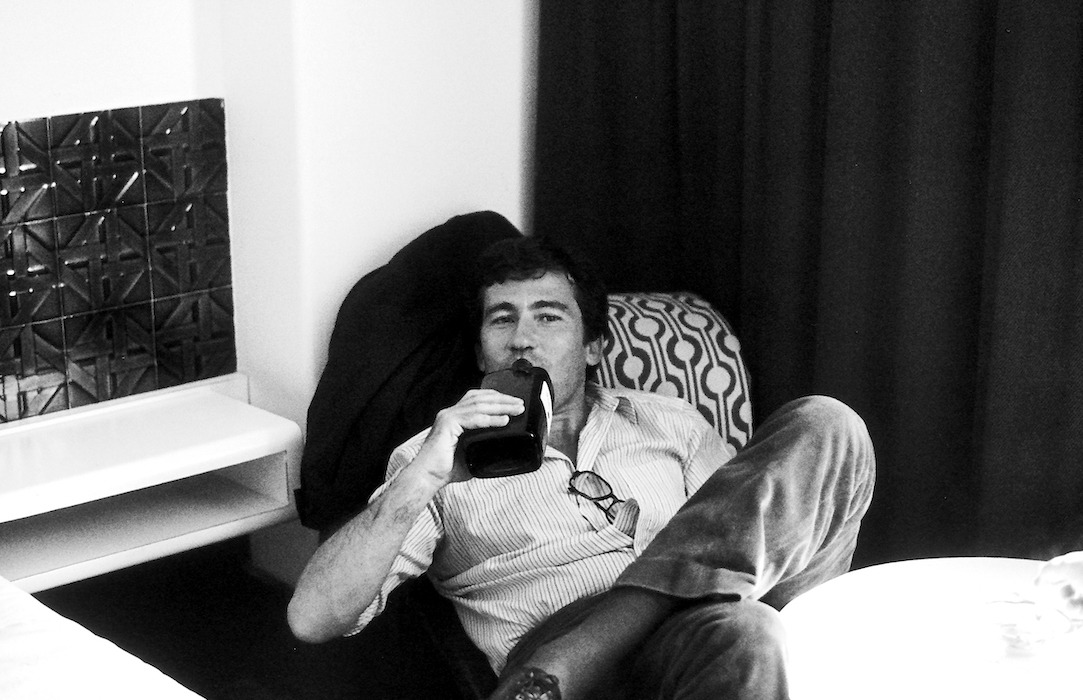- “Gargoris and Habidis: A magical history of Spain”: Published in 1978, it became a publishing phenomenon during the Transition, selling 300,000 copies and obtaining the prestigious National Essay Award. It is an epic trilogy that narrates the ancestral Iberian legends, and in which we can appreciate the presence of Templars, Sephardim, werewolves, sorcerers, shepherds, nomads, healers, druids and other characters from the magical Spanish cosmogony.
-
“The Maze Test”: According to the author, it could have been called “The most beautiful story ever told”. The story follows a 53-year-old Spanish detective who is forced by gods and circumstances to search for Jesus of Galilee, a Jewish preacher who mysteriously disappeared in the year 33. Jesus’ life is full of mystery, travel, tension, beautiful and pious women, traitors, exoticism, occultism, tyrants, political and religious struggles, among other things. The novel won the Planet Award in 1992 and has all the ingredients of the Indiana Jones movies.
- “Magical history of the Camino de Santiago”: In this work, the author presents himself as a Jacobean guide and plunges us into the depths of the Camino de Santiago. Throughout the novel, the protagonist meets witches, participates in dark liturgies, spends sleepless nights with Templars and plays tarot cards with alchemists, all in a fascinating journey full of enigmas and magic.
-
“Parallel Deaths”: On July 17, 1936, when Indalecio Prieto reported in the Cortes cafeteria that the Melilla garrison had risen up, the author’s father, who at that time was the director of the Febus agency, made the decision to travel south for information. Sánchez Dragó transports readers to a transcendental historical moment, as well as relevant in his life because his father never returned. A year later, his wife began the search for his whereabouts.
-
“A walk through honor and death”: From Manolete to José Tomás, passing through Los Caminos and El Juli, this work is a compilation of “great portraits of great bullfighters”. It is a passionate declaration of love for bullfighting, which the author considered “the most cultured party on earth.”
-
“the path of the heart”: This novel was a finalist for the prestigious Premio Planeta in 1990. Set in the 1960s, it narrates the journey undertaken by a man who, disillusioned with the West, decides to embark on a journey to the East, in search of the wisdom, spirituality and happiness that Yearns. Sánchez Dragó lived this experience up close and has always felt a deep connection with Orientalism. His passion for the great Asian religions such as Hinduism, Buddhism and Taoism is clearly reflected in this novel that spans countries.
Fernando Sanchez Drago, born in Madrid in 1936, showed from his childhood that letters were going to occupy an essential part of his life. At the age of five he founded, directed and edited an autograph newspaper, The New Spain, of which several copies are preserved. He studied Philosophy and Letters at the Complutense (Romance and Italian sections) and took part in the anti-Franco riots at the end of the fifties and beginning of the sixties, which earned him five trials, seventeen months in prison and seven years in exile.
An indefatigable traveler, he has traveled seventy-four countries and has been a professor of History, Literature and Spanish Language at thirteen universities in Spain, Italy, Japan, Senegal, Morocco, Jordan, Kenya and the United States. As a journalist, he has been a special envoy to many countries in Asia, Africa and America, and has worked at Italian Radio and Television, at the Japanese Broadcasting Corporation (NHK), at Group 16 publications, where he founded the book supplement dissidences, on SER, on Radiocadena (where he won the Ondas Award in 1988) and on Televisión Española (responsible, among others, for the programs Encounters with Letters, Bullfighting, National Library, The world by montera, The Round Table).
In his extensive work as a writer, Gargoris and Habidis. A magical history of Spainwork for which he won the National Literature Award in 1979, Finisterre, about trips, voyages, shipwrecks and navigations (1984), From Priscillianism to Liberalism. double jump without net (1987), Volapié: Bullfighting and bullfighting (1987), The Dragontea. diary of a warrior (1992), the maze test (1992), with which he won the Planeta Award, On Shiva’s wire (1997), The road to Ithaca (1998), The Left Hand Pathwhich was the Martínez Roca Spirituality Award in 2002, or parallel deathsFernando Lara Novel Award 2006.
He has been, and is, a regular collaborator of He World, Time, Onda Cero, COPE and other media.

